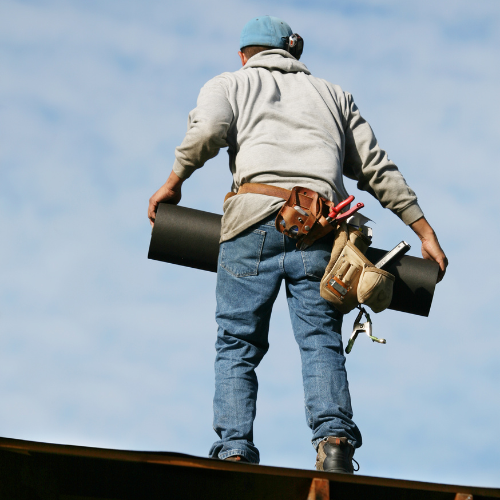What is the average cost of a roofer per square foot?
by siteadmin

Cost of roof replacement depends on many factors such as labor, location, unique features, and materials. Materials and labor account for approximately 60% of the total cost.
Asphalt and architectural shingles are the most popular roofing materials. There are also options for cedar, steel and copper.
Materials
It is possible to spend a lot on your roof materials, especially if you have a few square feet with dormers and steep pitches. Some roofing companies will charge per square foot, while others will calculate a flat fee at the time you get an estimate. Others might charge a fixed fee.
A new roof can be fun, especially when you are able to choose from a wide range of roofing materials and get a feel for what is best for your home. A metal roof, for example, is a long-lasting and energy-efficient option that will not need to be replaced. You will save money over the long-term by reflecting heat and keeping your electricity bills lower. Wood shingles and shakes look great for a traditional look. They are also easier to install than plastic shingles.
Labor
The cost of roofing labor depends on the type of material used, the slope and size, as well as accessibility. Tile and slate are more difficult to install than asphalt shingles.
Labor costs can also be affected by roof features and modifications such as skylights, chimneys, exhaust fans, solar panels, or skylights. These features and modifications take more time and require additional safety equipment.
Depending on the amount of labor and material required to remove an old roof, the average cost for this job is $1-5 per square foot. If necessary, fees may apply for dumpster rental and other disposal costs.
The average cost of labor to install a new roof is $200-$450 per square depending on the material and the complexity of the job. Shingles are the most affordable, while metal roofs can be more difficult and require more experience.
Warranties
Roofers often offer warranties that cover their work. Homeowners should ensure they are at least five years old. These warranties will cover your home and wallet in the event of any problems with your roof.
The manufacturer of your roof materials or your contractor will offer warranties. They can be varied in terms of cost and coverage. There are two types of warranties available: workmanship warranties and manufacturers' materials warranties. Knowing the difference can help you make informed decisions about your next roof replacement.
Manufacturers usually offer material warranties that range from 10 to 30-years. They will cover any defects in the materials or failures. They are usually not covered for damage caused by incorrect installation.
Roofers may offer lifetime workmanship warranties. However, it is important that you carefully review the contract to ensure that you fully understand the terms and conditions of the warranty. This warranty is usually only available to contractors with a track record of high quality work.
Inspections
Roofs are an integral part of a home's structure, integrity and protection from the elements. Roofs aren't indestructible and can develop or deteriorate over time.
Regular roof inspections are important to keep your roof in top shape. These inspections will help you identify potential problems and then determine the best way to fix them.
These inspectors can spot potential problems that may not be obvious to the naked eye. An inspector of the roof will inspect the structure and membrane beneath the shingles and look for any signs of moisture or tears that could lead to weak spots.
The inspector will inspect rubber boots and seals around vent pipes, and other penetrations for damage or deterioration. The inspector will also inspect flashing, which are strips of metal, plastic, or other materials that divert water away to the joint where a wall runs through a roof.
1714 Gilbertsville Rd, Pottstown, PA 19464
Cost of roof replacement depends on many factors such as labor, location, unique features, and materials. Materials and labor account for approximately 60% of the total cost. Asphalt and architectural shingles are the most popular roofing materials. There are also options for cedar, steel and copper. Materials It is possible to spend a lot on…
Recent Posts
- EmPartners Elevates Life Sciences Consulting with Innovative Services
- Dos Reyes PGH: Elevating Catering in Pittsburgh, PA
- Prettyman Pressure Washing & Painting Revitalizes West Chester with Top-Notch Services
- Top Notch Roofing/Siding: The Best Roofing Contractor in Absecon, Egg Harbor Township, NJ
- Dos Reyes PGH Redefines Catering Experience in Pittsburgh with Innovative Food Truck and Corporate Catering Services
